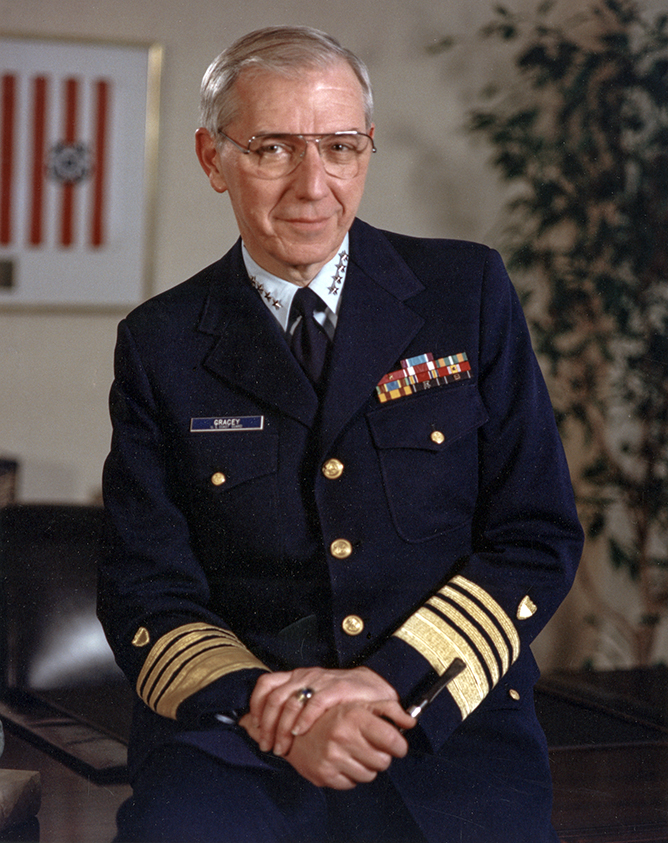
Gracey, James S., Adm., USCG (Ret.)
(1927–2020)
After growing up in New England, Gracey attended the Coast Guard Academy, from which he graduated in the class of 1949 after serving as cadet battalion commander. He served as a junior officer in the cutter Barataria (WAVP-381) in 1949-51. His next assignment, during the Korean War, involved training at Camp Gordon, San Francisco, and Port Chicago, prior to his 1951-53 assignment in the Captain of the Port office in Boston. In the mid-1950s, he commanded the LORAN station at Yakutat, Alaska, had a brief stint on the Coast Guard Academy staff, and was a student at the Harvard Graduate School of Business. From 1956 to 1960 Gracey was in the Supply Division of Coast Guard Headquarters, then commanded the buoy tender Mariposa (WAGL-397), 1960-62. He served 1962-65 in the Second Coast Guard District office in St. Louis and 1965-69 on Governors Island, New York. In the latter assignment he had a key role in the transformation of the base from Army to Coast Guard use. From 1969 to 1974 he headed the Programs Division (CPA) in Coast Guard Headquarters. After selection for flag rank in 1974, Gracey served briefly as chief of staff to Commander Fifth Coast Guard District, then commanded the Ninth Coast Guard District in the Great Lakes region, 1974-77. In 1977-78 he was Coast Guard Chief of Staff. As a vice admiral he commanded the Pacific Area and 12th District, 1978-81, and the Atlantic Area and Third District, 1981-82. Admiral Gracey was Coast Guard Commandant, 1982-86, and after retirement had a role in Capstone Program training for newly promoted flag and general officers. Major concerns during his tenure as Commandant were fighting off attempts by the Reagan Administration to privatize Coast Guard functions; enforcing a policy of zero tolerance of drug use; building international relations with maritime nations; enhancing roles for women; and promoting pride in service on the part of Coast Guardsmen.
About this Volume
Based on 12 interviews conducted by Paul Stillwell from February 2001 to September 2001. The volume contains 745 pages of interview transcript plus an index. The transcript is copyright 2004 by the U.S. Naval Institute; the interviewee has placed no restrictions on its use.



